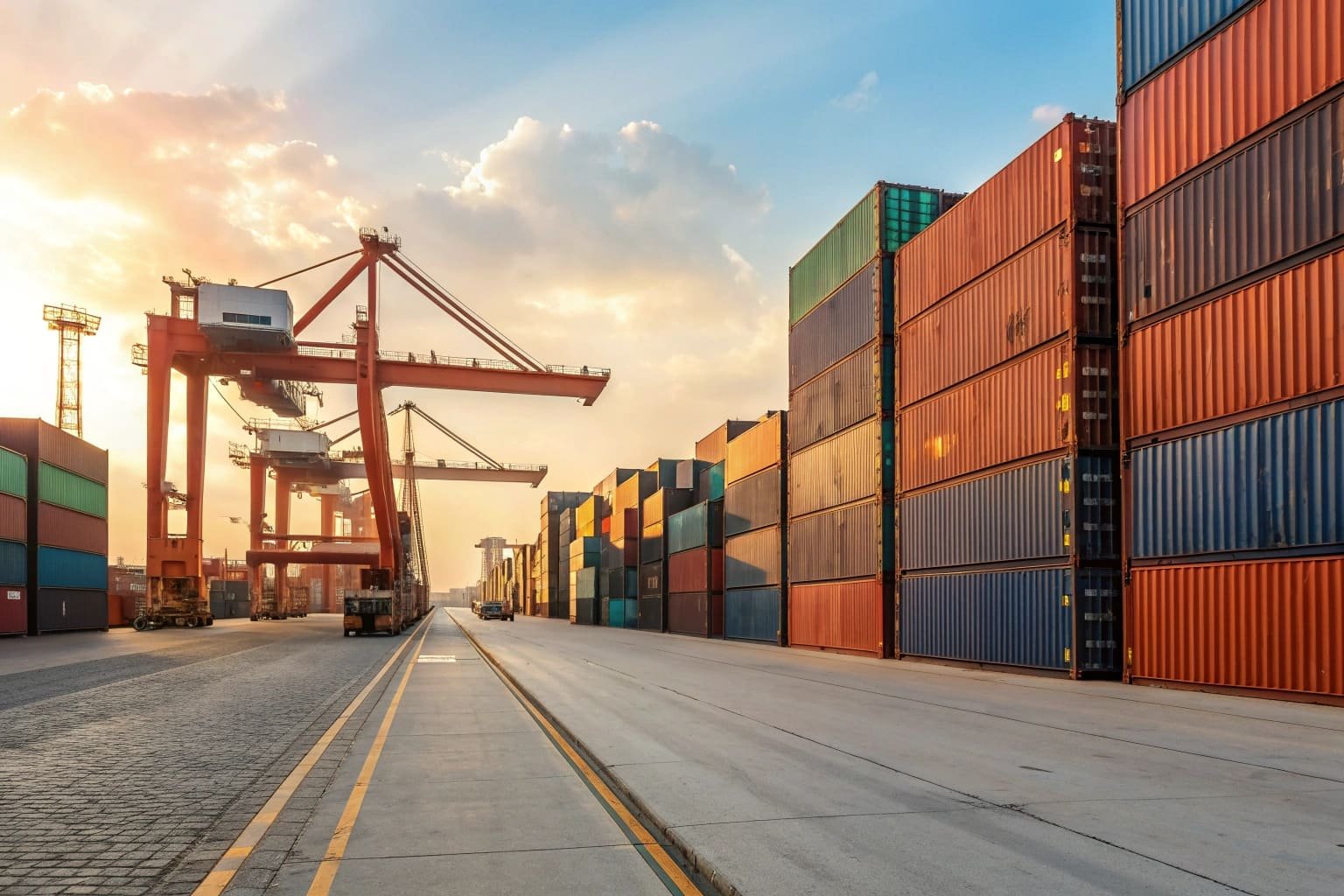International trade is fraught with complex logistics, customs procedures, and regulatory requirements. If business owners are not well-versed in these processes—particularly in understanding International Commercial Terms (Incoterms)—they may face significant financial losses. The International Chamber of Commerce (ICC) created these terms to clearly define the responsibilities of buyers and sellers during the transportation and delivery of goods. Among them, Ex Works (EXW) is a commonly used term that heavily favors sellers by minimizing their obligations, but for buyers unfamiliar with these terms, it can conceal considerable risks.
Under an EXW agreement, the buyer assumes nearly all responsibilities for transportation and logistics, starting from the seller's location to the final destination. This means that if the buyer lacks sufficient knowledge or experience in international logistics, customs clearance, and insurance, they could incur unexpected costs, delays, or other issues leading to financial losses.
This guide will delve into every aspect of Ex Works (EXW), with a particular emphasis on the financial risks that buyers may encounter if they misunderstand or misapply this term. We will thoroughly explain the specific responsibilities of both parties, compare EXW with other Incoterms, and offer practical advice to help businesses effectively manage EXW agreements. Whether you are an experienced importer or new to international trade, this guide will equip you with the necessary knowledge to avoid potential financial pitfalls and make decisions that align with your business goals.
What Does Ex Works (EXW) Mean?
Ex Works (EXW) is one of the 11 Incoterms defined by the International Chamber of Commerce (ICC). It places the minimum obligation on the seller and the maximum responsibility on the buyer. Under an EXW agreement, the seller is only required to make the goods available at their premises or another named place (factory, warehouse, etc.). The buyer is responsible for all costs and risks associated with transporting the goods from the seller’s location to the final destination.
EXW is often used in domestic trade, but it can also be applied in international transactions. It is particularly common when the buyer has better access to transportation or can handle the export process more efficiently than the seller. However, this term can pose significant risks to buyers who are not familiar with international shipping and logistics.
Who Pays for Shipping in an EXW Agreement?
One of the most critical aspects of the EXW Incoterm is that the buyer assumes all responsibilities and costs associated with transporting the goods. This includes arranging for transportation, handling export and import customs clearance, and paying all freight charges.
For example, if a U.S.-based business purchases machinery from a manufacturer in Germany under an EXW agreement, the U.S. buyer would be responsible for:
- Collecting the goods from the German factory.
- Arranging transportation to the port of departure.
- Handling export documentation and customs clearance.
- Paying for shipping, insurance, and any other costs until the goods reach their final destination in the U.S.
The seller’s responsibility ends when they make the goods available at their premises, and the buyer must bear all risks from that point onwards.
Advantages and Disadvantages of Using EXW
Advantages of EXW for the Seller:
- Minimal Responsibility: The seller’s only obligation is to make the goods available for pickup. This reduces the seller’s involvement in the shipping process and minimizes their risk.
- Cost Control: Since the seller does not handle transportation or logistics, they avoid additional costs associated with these services.
Disadvantages of EXW for the Buyer:
- Increased Responsibility and Risk: The buyer must manage the entire shipping process, including export and import procedures, which can be complex and time-consuming.
- Potential for Higher Costs: Buyers unfamiliar with international logistics may incur higher costs due to inefficiencies or lack of negotiating power with shipping companies.
- Complications in International Trade: When dealing with different countries’ regulations, the buyer may face unexpected challenges in customs clearance, leading to delays and additional expenses.
Advantages of EXW for the Buyer:
- Control Over Shipping: The buyer has full control over the shipping process, which can be advantageous if they have established relationships with logistics providers.
- Flexibility: Buyers can choose the most cost-effective or efficient shipping methods that suit their needs.
Disadvantages of EXW for the Seller:
- Limited Control: Once the goods are made available, the seller has no control over how they are handled, which could lead to potential disputes if issues arise during transportation.
EXW vs. FOB: Which Is Better for Your Business?
Free on Board (FOB) is another widely used Incoterm that offers a different distribution of responsibilities between buyers and sellers. Unlike EXW, under an FOB agreement, the seller is responsible for transporting the goods to the port of shipment and loading them onto the vessel. The risk and cost transfer to the buyer only when the goods are on board the ship.
Key Differences Between EXW and FOB:
- Seller’s Responsibility: In FOB, the seller handles more of the logistics, including transportation to the port and loading the goods. In EXW, the seller’s responsibility ends at their premises.
- Risk Transfer: With FOB, the risk transfers to the buyer when the goods are loaded onto the ship. In EXW, the risk transfers much earlier, when the goods are made available at the seller’s premises.
- Cost Implications: FOB generally involves higher costs for the seller, as they must handle more logistics. However, for buyers, FOB can be less risky and more predictable than EXW.
Which is better? It depends on your business’s capabilities and needs. If you have experience in international logistics and want more control over the shipping process, EXW might be a better choice. However, if you prefer to minimize risk and have the seller handle more of the logistics, FOB could be more suitable.
How to Calculate the Ex Works Price
When negotiating an EXW agreement, it’s essential to calculate the total cost accurately to avoid unexpected expenses. The Ex Works price typically includes the cost of the goods and any costs associated with making the goods available for pickup at the seller’s premises. However, since the buyer is responsible for all subsequent transportation costs, you’ll need to factor in the following:
- Transportation Costs: Include the cost of transporting the goods from the seller’s location to the port of departure, shipping charges, and delivery to the final destination.
- Insurance: While not mandatory under EXW, the buyer should consider purchasing insurance to cover the goods during transit.
- Customs Duties and Taxes: Calculate any import duties, taxes, and customs clearance fees.
- Handling and Packaging: Depending on the nature of the goods, you may also need to account for special packaging or handling requirements.
By accurately estimating these costs, you can determine the total landed cost of the goods, which is critical for budgeting and pricing decisions.
Legal and Logistical Considerations for EXW
Using EXW in international trade can involve various legal and logistical challenges. It’s crucial to understand the regulatory environment in both the seller’s and buyer’s countries. This includes complying with export and import laws, obtaining the necessary permits, and ensuring that all documentation is correctly completed.
Key Legal Considerations:
- Export Compliance: Ensure that the seller’s country allows the export of the goods and that all necessary export licenses and documentation are obtained.
- Import Regulations: The buyer must be aware of the import regulations in their country, including any restrictions on certain goods or requirements for specific certifications.
- Insurance: Although EXW does not require the seller to provide insurance, the buyer should consider insuring the goods during transit to mitigate risks.
- Contractual Terms: Clearly define the terms of the sale in the contract, including the specific location where the goods will be made available, payment terms, and responsibilities for any additional services like packaging or labeling.
Logistical Challenges:
- Coordinating Transportation: The buyer must coordinate with logistics providers to ensure timely pickup and delivery of the goods. Delays at any stage can lead to additional costs and complications.
- Customs Clearance: Navigating the customs process can be complex, especially in countries with stringent regulations. The buyer must ensure that all documentation is in order to avoid delays or penalties.
Real-World Examples of EXW in Action
Case Study 1: Small Business Importing Machinery A small U.S. business decided to purchase specialized machinery from a manufacturer in China under an EXW agreement. The buyer was responsible for coordinating transportation from the factory in China to their warehouse in the U.S. The company used a freight forwarder to handle the logistics, but they encountered unexpected delays in customs clearance due to incomplete documentation. This resulted in additional storage fees and delayed their production schedule.
Lessons Learned: The buyer realized the importance of thoroughly understanding the documentation requirements and choosing a reliable logistics partner when using EXW.
Case Study 2: Large Corporation Using EXW for Raw Materials A large multinational corporation sourced raw materials from a supplier in Brazil using an EXW agreement. Due to the company’s extensive logistics network and experience, they were able to efficiently manage the transportation process. By using their own shipping lines, they reduced costs and maintained control over the supply chain, ensuring timely delivery of materials to their manufacturing plants worldwide.
Lessons Learned: For companies with strong logistics capabilities, EXW can offer cost savings and greater control over the supply chain.
Common Mistakes to Avoid with EXW
- Underestimating Costs: Failing to account for all transportation-related costs can lead to unexpected expenses and reduce profitability.
- Inadequate Documentation: Incomplete or incorrect documentation can cause delays in customs clearance and increase the risk of penalties or fines.
- Overlooking Insurance: Not insuring goods during transit can result in significant financial loss if the goods are damaged or lost.
- Choosing the Wrong Logistics Provider: Working with inexperienced or unreliable logistics providers can lead to delays, increased costs, and complications.
Summary
In summary, Ex Works (EXW) is an Incoterm that places maximum responsibility on the buyer, requiring them to handle all aspects of transportation and risk from the seller’s premises onwards. While EXW can offer advantages like cost control and flexibility, it also comes with significant risks and challenges, particularly for buyers unfamiliar with international logistics. Business owners should carefully consider whether EXW is the right choice for their transactions, weighing the benefits against the potential drawbacks. By understanding the responsibilities and costs associated with EXW, businesses can make informed decisions that protect their interests and optimize their supply chain.






